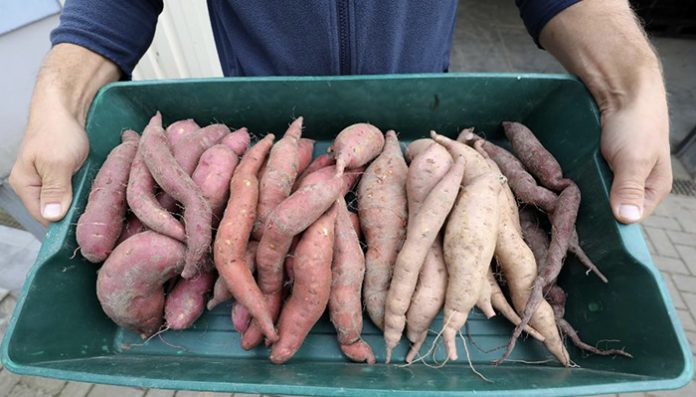
Even though no one has found any evidence that genetically modified organisms (GMOs) are harmful, anti-GMO activists have campaigned against them for years, with considerable success. As of this writing, 19 out of 28 countries in the European Union have voted to ban or severely restrict genetically modified plants, and many other countries impose similar bans.
But all of these restrictions may be in vain, because nature got there first. It turns out that many common foods have already been genetically modified, by a bacterium called Agrobacterium. (Read on to see the list.) And, in news that should be even more frightening to the anti-GMO crowd, these foods are transgenic: they contain genetic material from completely different species. Frankenfoods!
First, as I’ve argued before, genetic modification technology is just a tool, and a very precise one at that. Scientifically, claiming that GMOs are bad for you is nonsensical–it depends entirely on what the genetic modification is. Whether a food scientist modifies a tomato to taste better by traditional breeding or by using GM technology, you still end up with a tomato that has different genetic content. The only difference is that with traditional breeding, you have no idea what exactly you changed in the plant’s DNA. And humans have already consumed billions of servings of GM foods with no ill effects. The GM foods we eat today are perfectly safe.
So back to my first point. What are all these natural Frankenfoods, and how did they get that way?
I’ll start with the common sweet potato, or yam. Humans eat hundreds of varieties of sweet potatoes, and you can buy them in markets on every continent. Back in 2015, a group of scientists from Belgium, Peru, China, and the US (Tina Kyndt and colleagues) discovered that every cultivated variety of sweet potato has “foreign” DNA integrated into its genome, from a bacterium called (appropriately) Agrobacterium. They tested 291 different varieties, and found the bacterium 100% of the time. They also tested wild relatives of sweet potato, and found that the wild varieties (which humans don’t eat) are missing the bacterial DNA.
Agrobacterium is a bacterium with special properties: it has evolved to be able to insert its DNA directly into the genomes of a wide variety of plants. (Don’t worry, it doesn’t infect humans.) In sweet potatoes, this happened naturally, centuries or millenia ago, long before humans were cultivating it. But then we came along, and (apparently) we liked the taste of these naturally transgenic sweet potatoes, so those are the ones that we chose to cultivate. As a result, all the sweet potatoes we eat are GMOs, although it happened naturally.
Source: www.forbes.com










